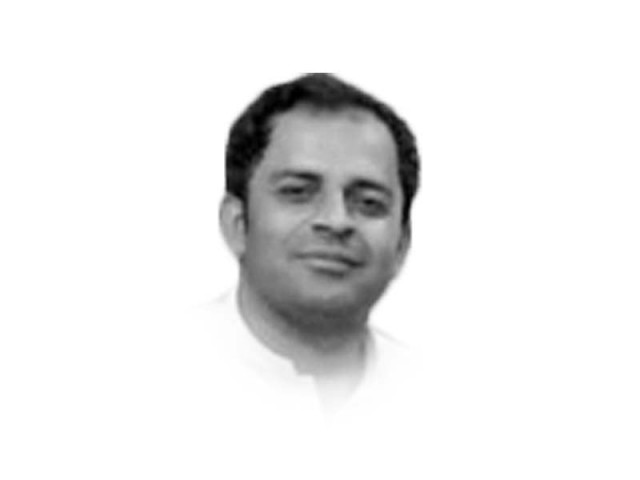Fatalism, fear and fallacy
Aristocracy thereafter capitalised on the fear, insecurity and agonies of poor with impunity

Ever since their inception on Earth, humankind has tried to assume mastery of life and design it in a manner that serves their interests in the best possible means. History, however, stands witness to the reality that this has hardly been the case. Of all creatures creeping and crawling on the planet earth, human enjoys a distinguished cognitive status. The epithet of the crown of the creatures, for instance, enjoins men with the highest intellectual status in the pyramid of creatures. The unmatched cognition notwithstanding, humans lag far behind as far as their wishes and whims are concerned, and perhaps for the right reasons. Despite being the crown, a human is hardly a perfect being in his own right; many a thing is beyond his conscious control. This enigmatic and defiant variable is often termed fate.
The question of the relative relevance of fatalism and free will in human life attended primitive and modern, learned and layperson. Though the two claim different relevance in different contexts, the notions framed around fatalism remained, for the most part of history, the dominant account of systematic dictation of human affairs. The term fatalism implies an attitude and belief that the course of one’s life is determined by forces far beyond one’s control. As all future events and conditions are pre-determined, fatalism warrants passivity and resignation in the face of events in one’s life.
Whatever its exact nature or modus operandi, the enigma of fate remained a dominant tool of powerful for dictating public opinion and social behaviour for since antiquity. This controlling mechanism involved a state-clergy nexus in exaggerating the role of destiny and painting the same with fallaciously framed rhetoric. Given the people’s inherent propensity towards effortless supernatural accounts of understanding things, the clergy has played the leading role. The nexus coloured the destitute public plight along fatalistic lines and portrayed it as a divine tragedy. In this way, the duo closed the public doors to other accounts of understanding things, including rationality or science, by threatening them with falsified frightening divine retributions. This absolved them of accountability and made their plundered wealth fortified from the victim’s assault.
Resultantly, the major chunk of people has locked their minds, chosen to remain ignorant, acknowledged destitute plight as divinely determined fate and flown with the tides generated by the status quo. This made poor the passive objects of exploitation rather than the subjects to be reckoned with. The peddling of fatalistically framed fallacious ideas turned out to be customary in the succeeding generations and ultimately transformed into doctrines in the longer run. The aristocracy thereafter capitalised on the fear, insecurity and agonies of poor with impunity.
Though modern literature elaborates the social constructivism of poverty, fallacious and classical notions still remain relevant to the destitute section of our society. Fallacies, mythology, emotional sloganeering, bigotry, superstitions, demagoguery and reactionary tendencies dictate the socialisation in the country in general and Sindh in particular. The poor unquestionably keeps on grinding in the mill of poverty, fuelled in the name of their political, religious, ethnic and feudal affiliations. They acknowledged miserable plight as their divinely destined fate. The lasting poverty simultaneously serves as an end and mean for elite’s megalomania and greed.
Why are the poor destined to remain so? Is their generational poverty the displeasure of the goddess of luck? What makes them eligible for being poor for generations? What capability does the elite hold and the destitute lack? Isn’t poverty a carefully crafted means and end by and for the powerful? Isn’t it the result of social engineering where the desperate public plight serves as currency for the elite’s perks and privileges? Unless the wretched of the country is educated with the real answers to these questions, they would keep on being consumed by the ill-informed and arbitrary monsters of fate.
Published in The Express Tribune, January 29th, 2023.
Like Opinion & Editorial on Facebook, follow @ETOpEd on Twitter to receive all updates on all our daily pieces.















COMMENTS
Comments are moderated and generally will be posted if they are on-topic and not abusive.
For more information, please see our Comments FAQ